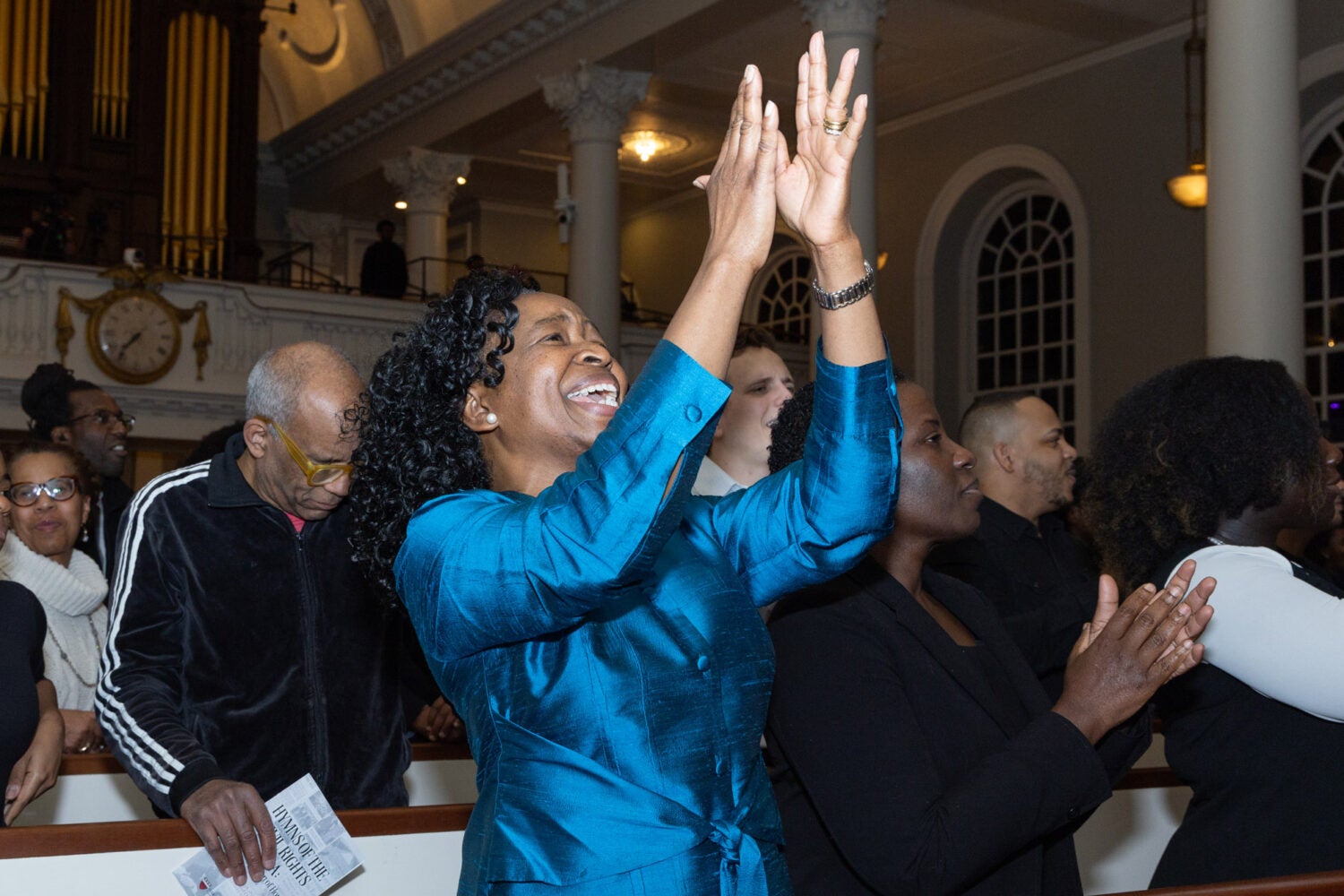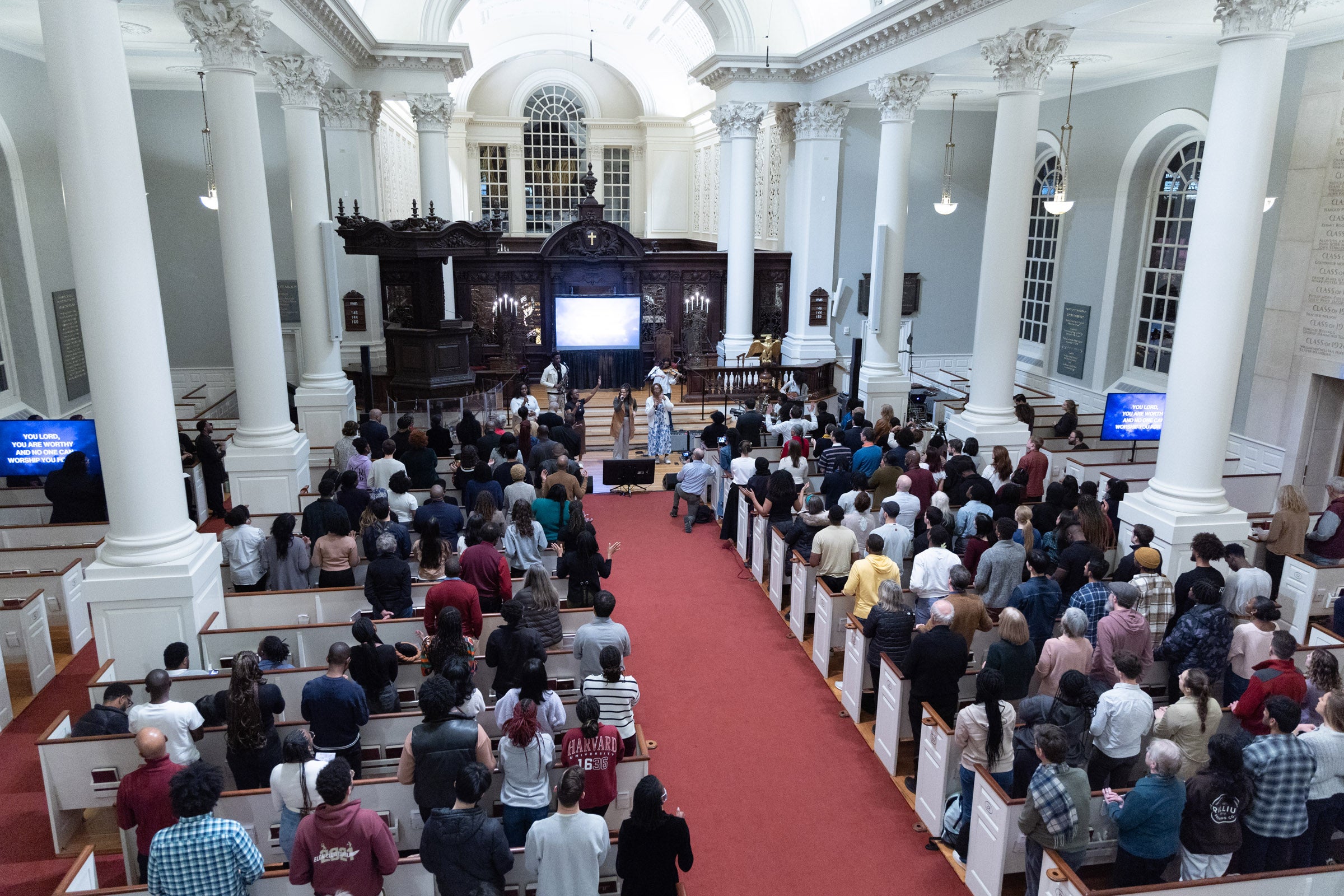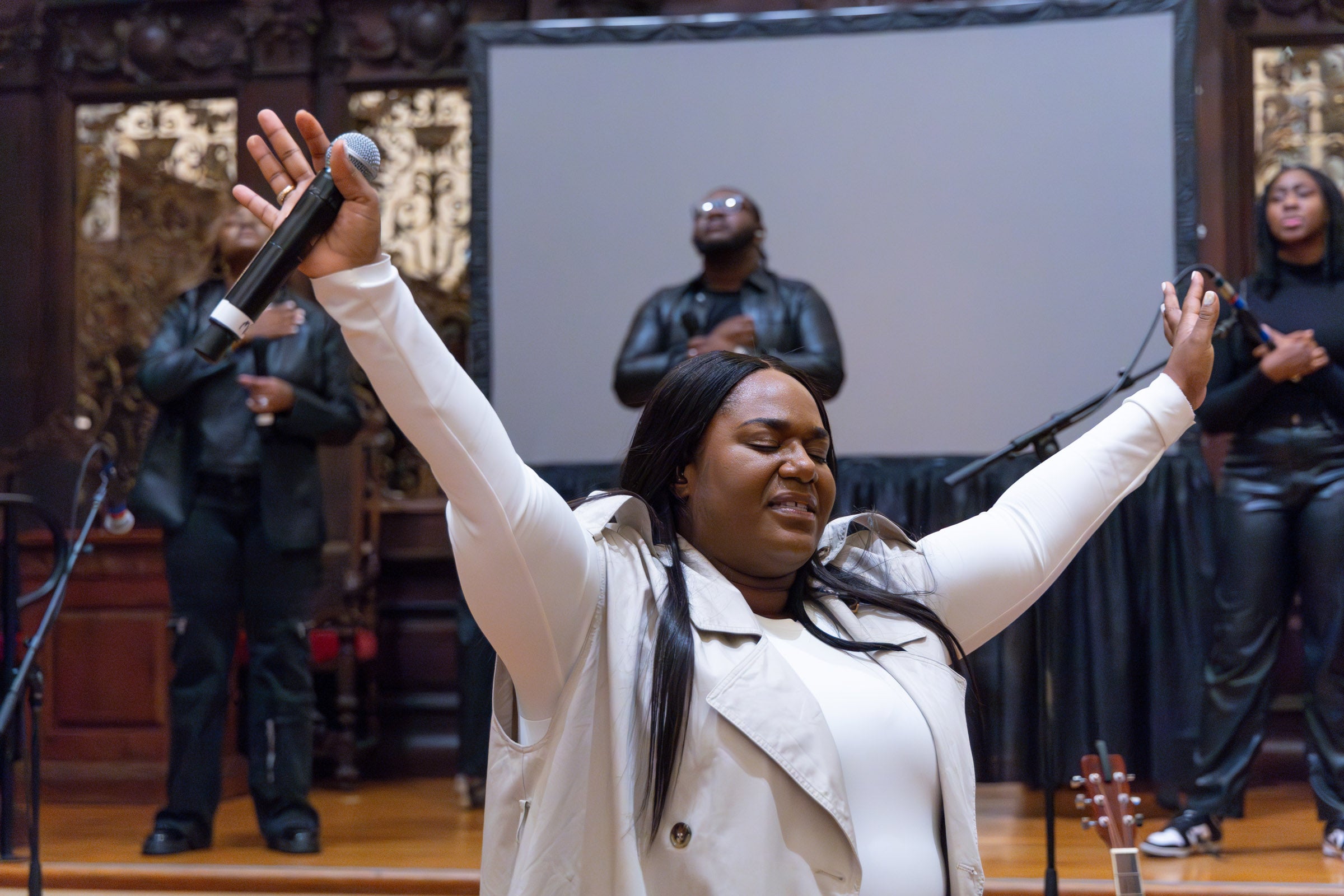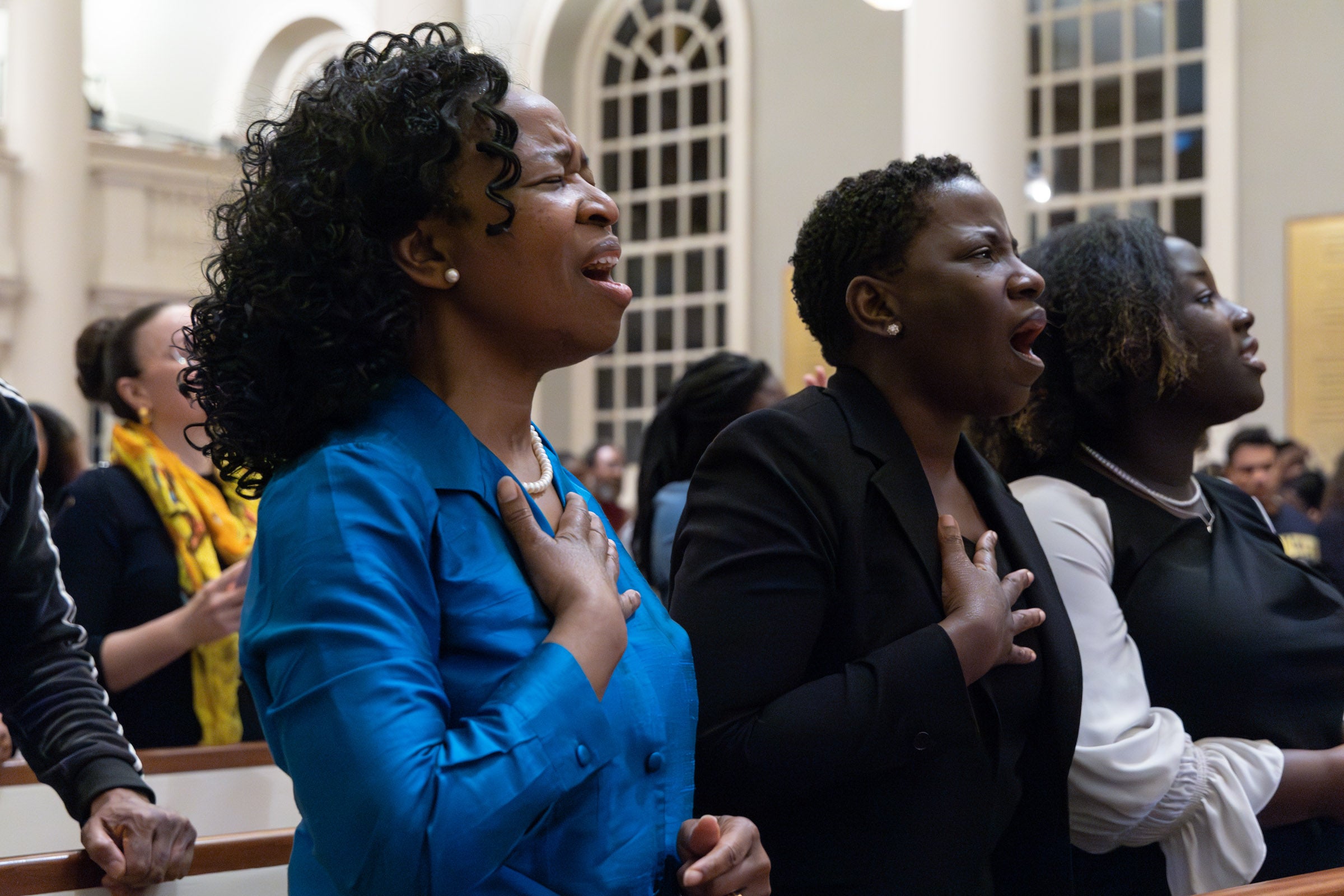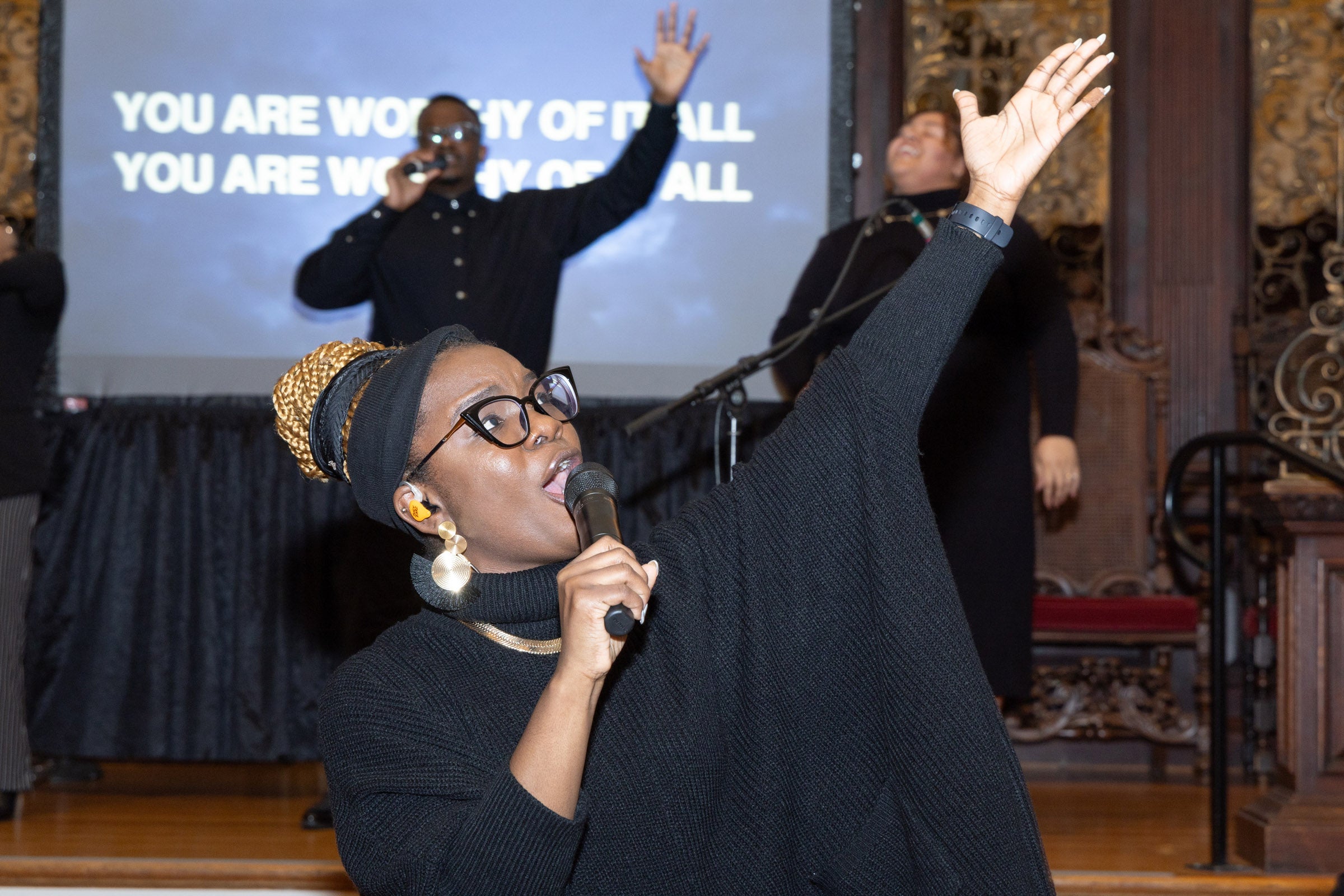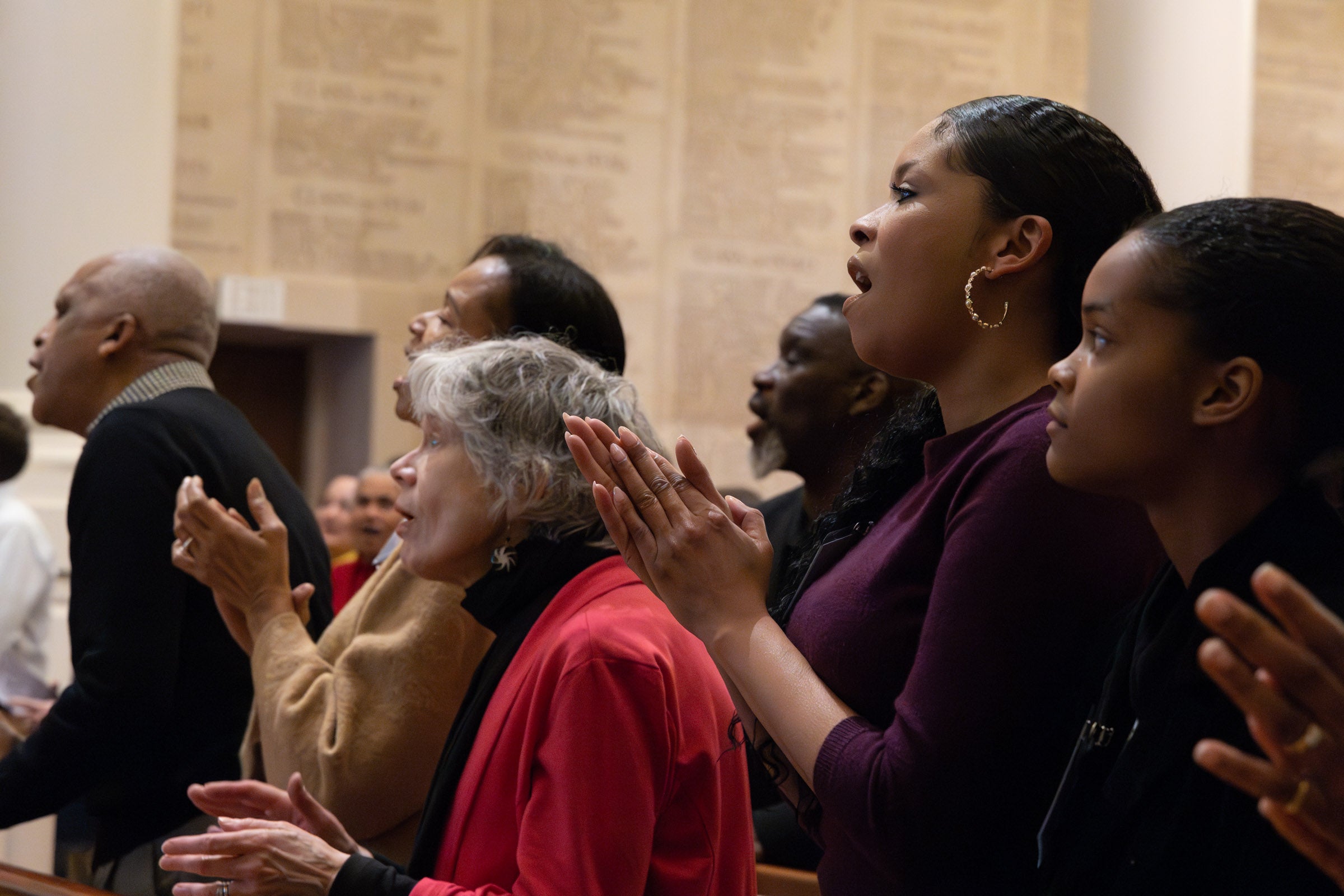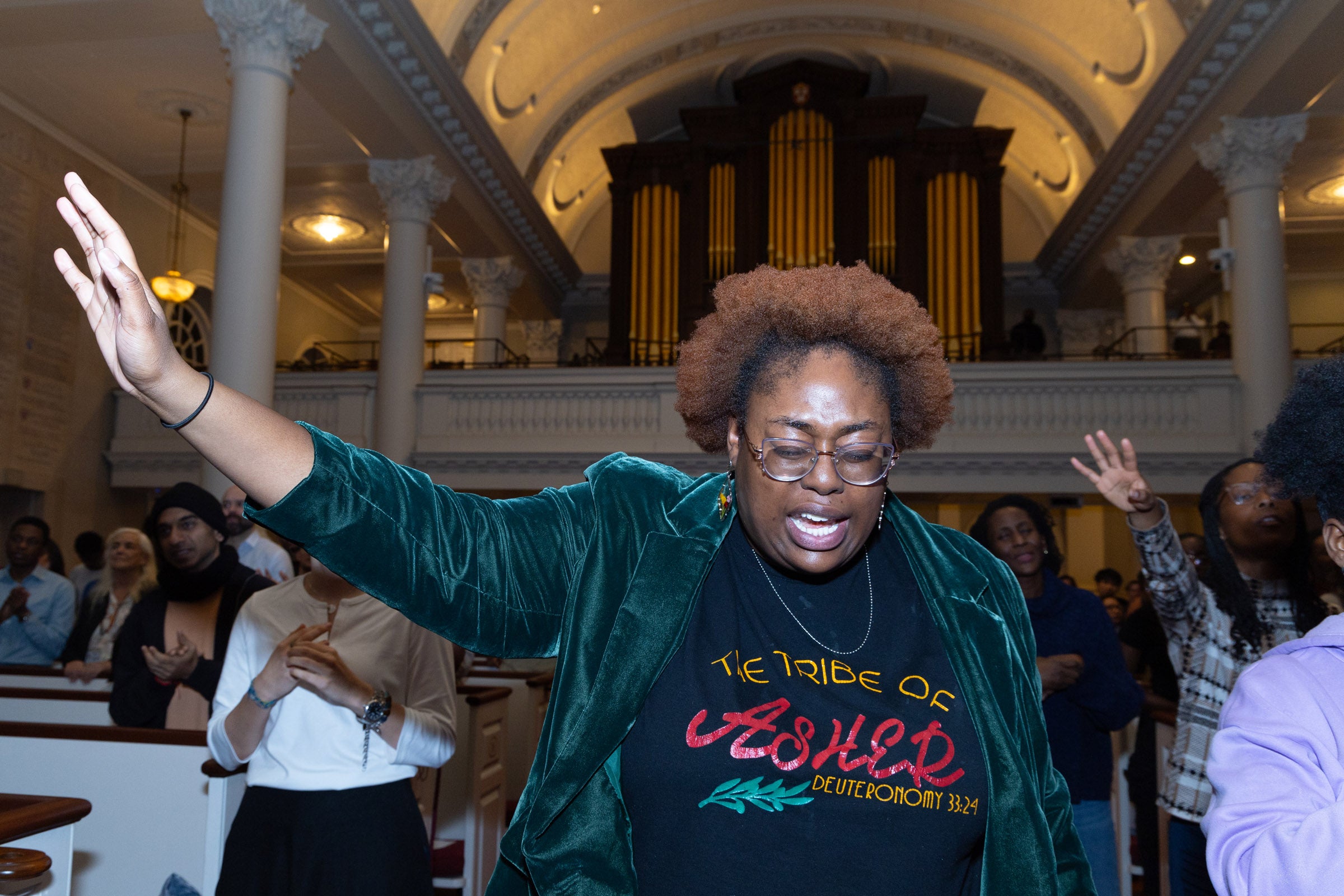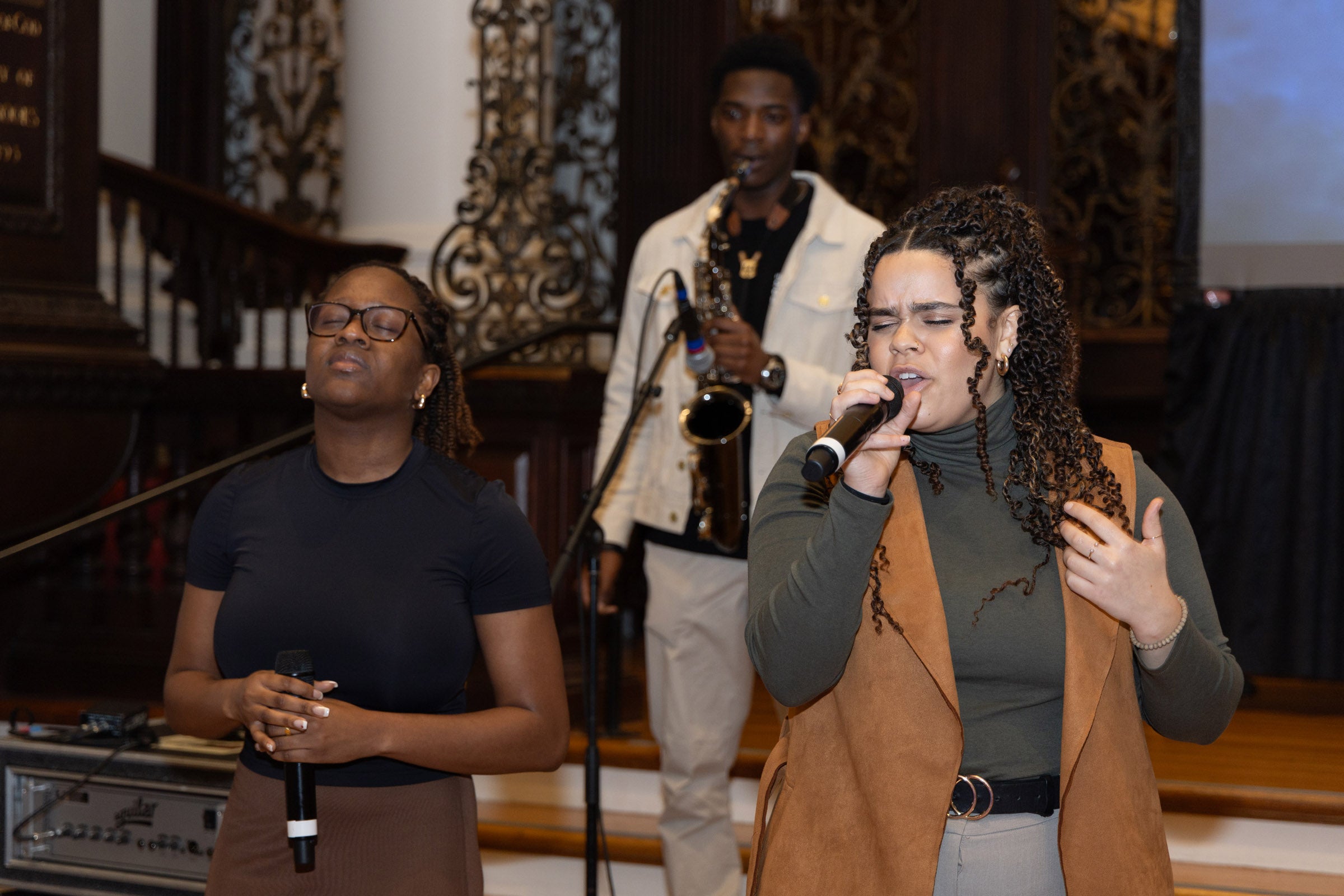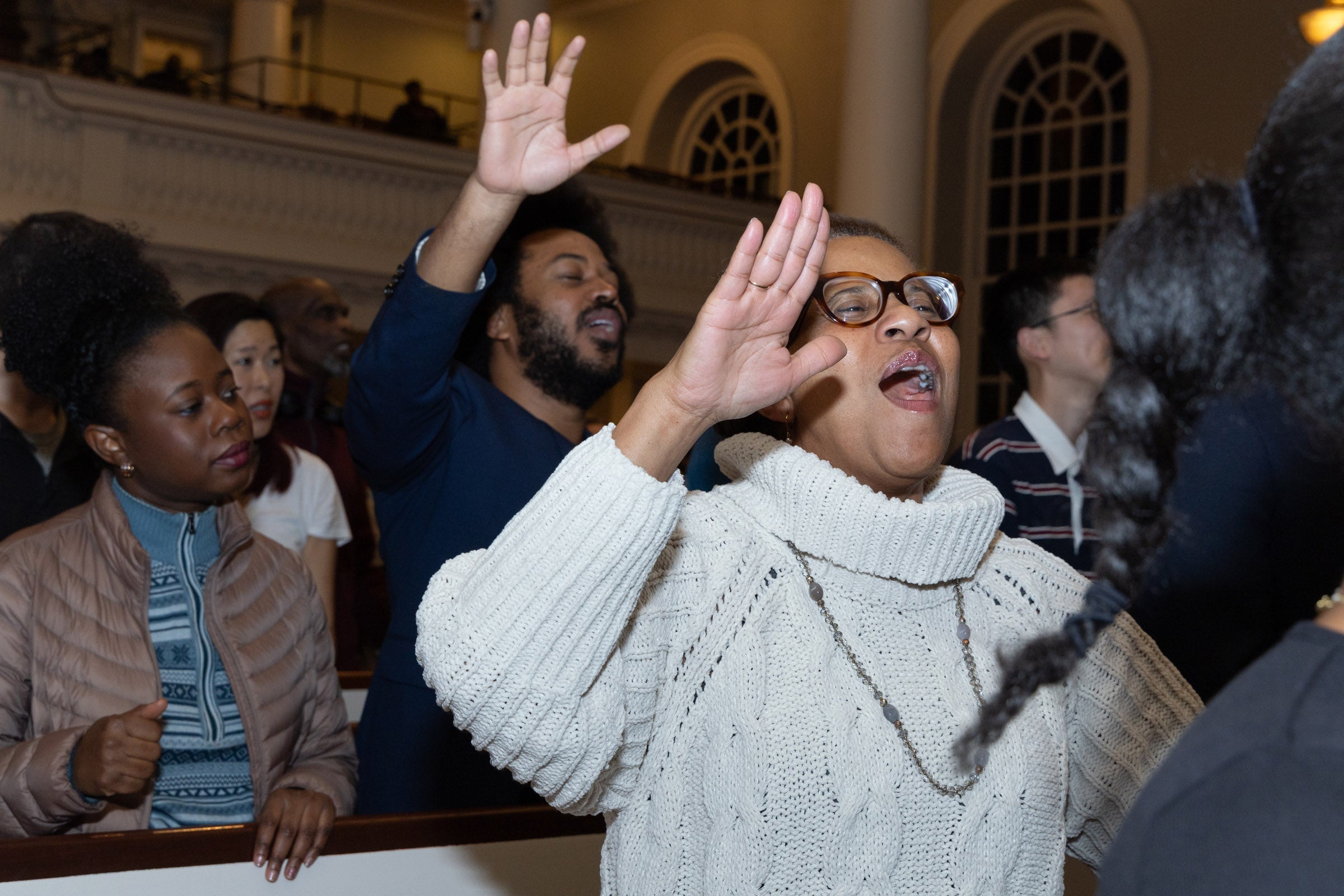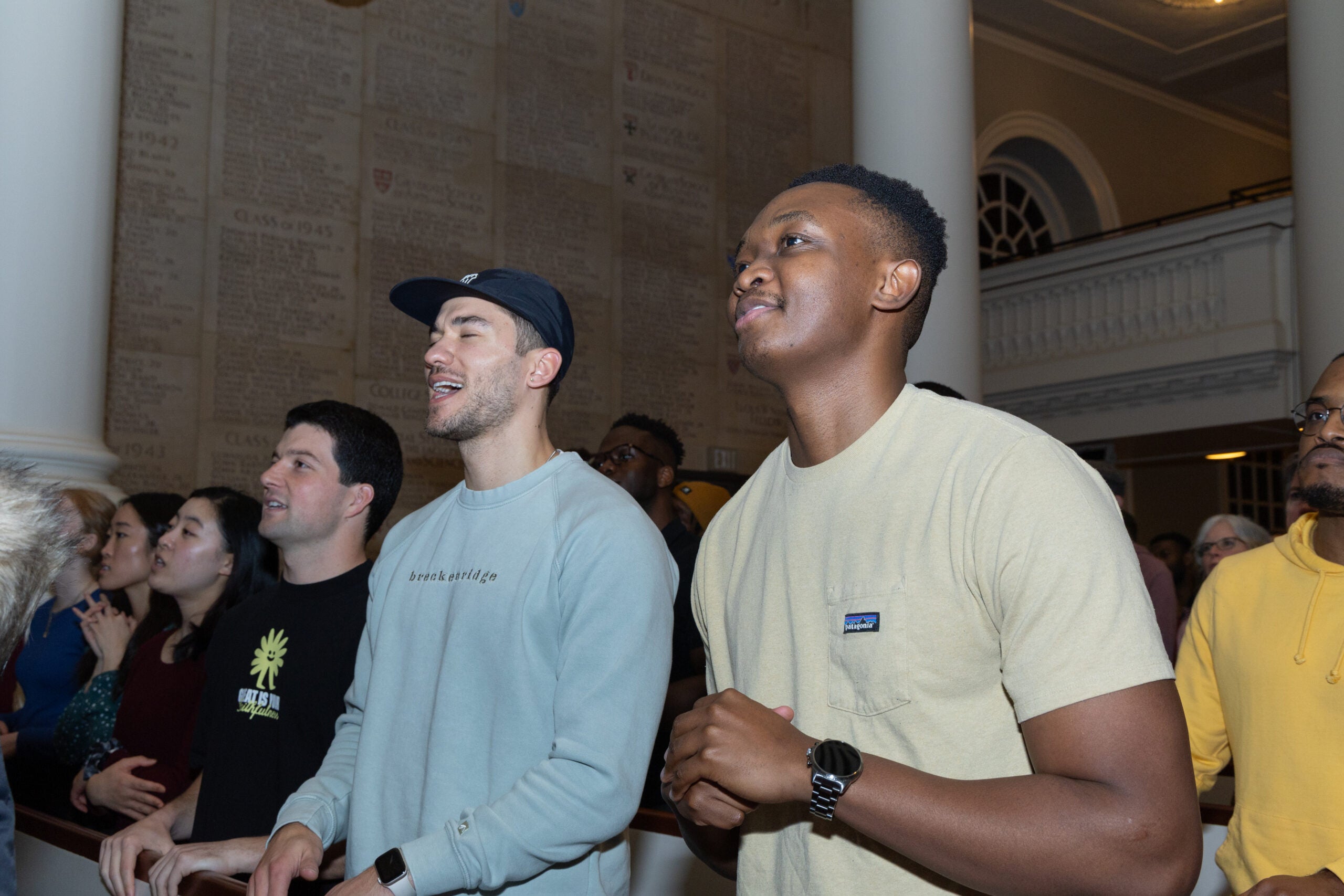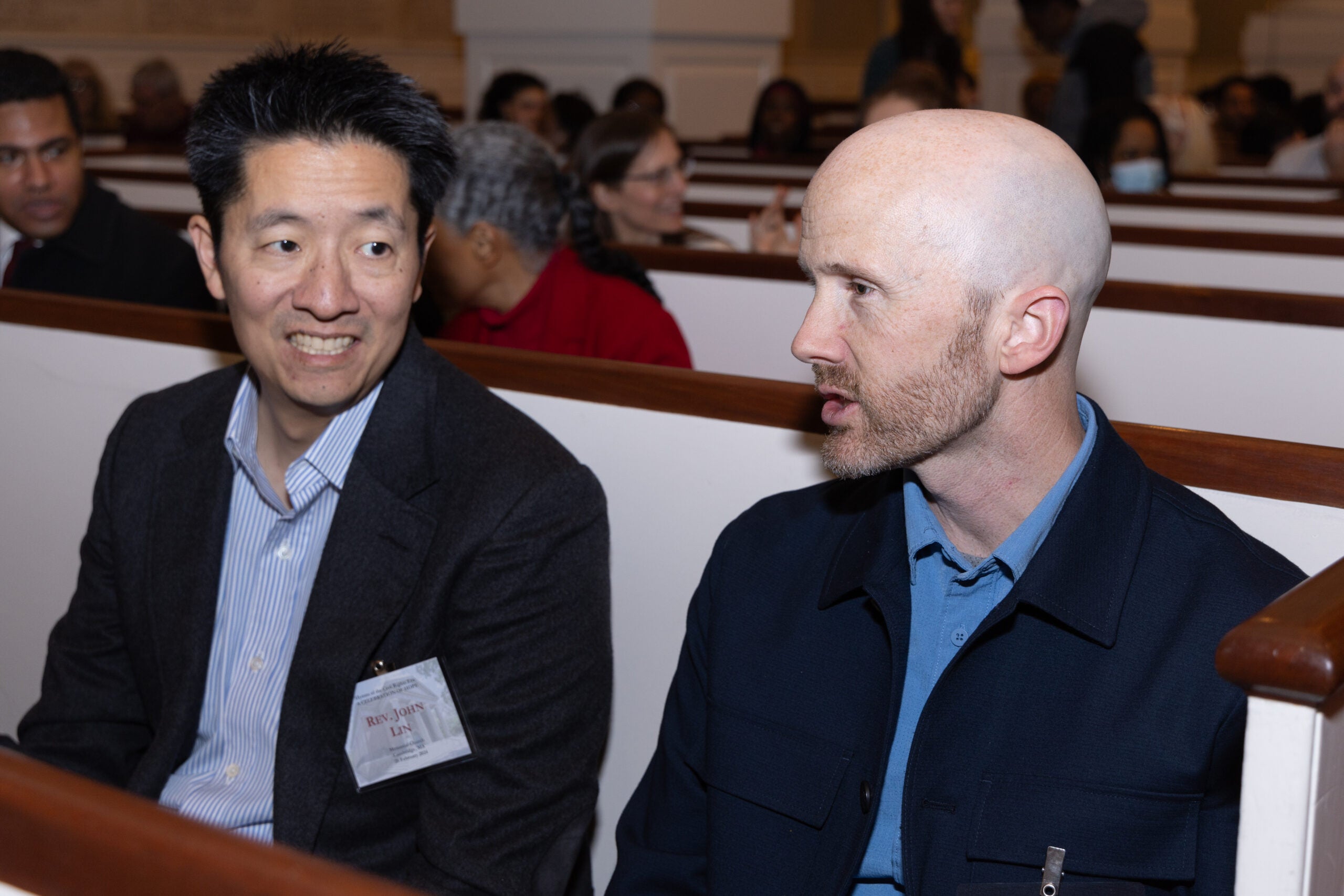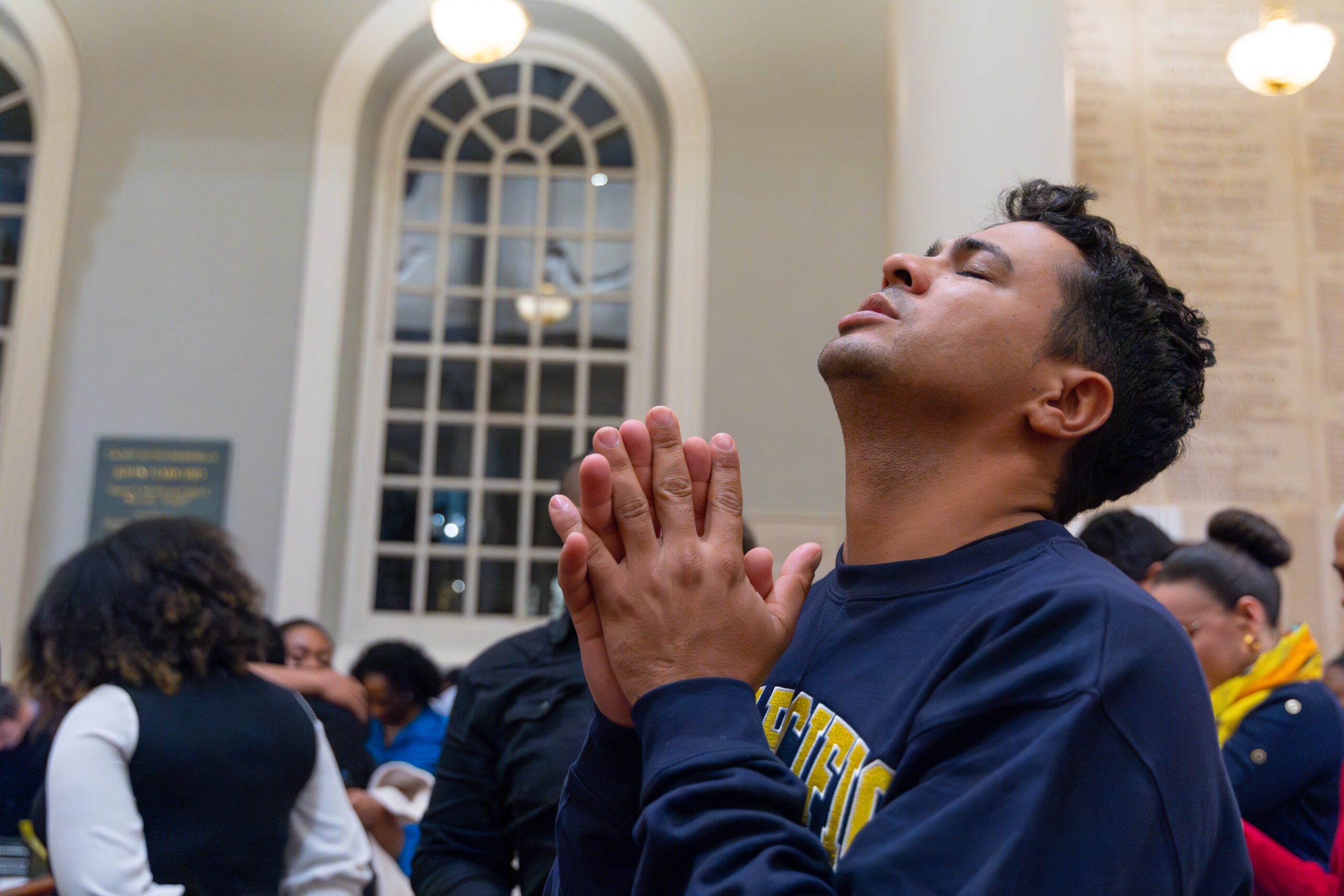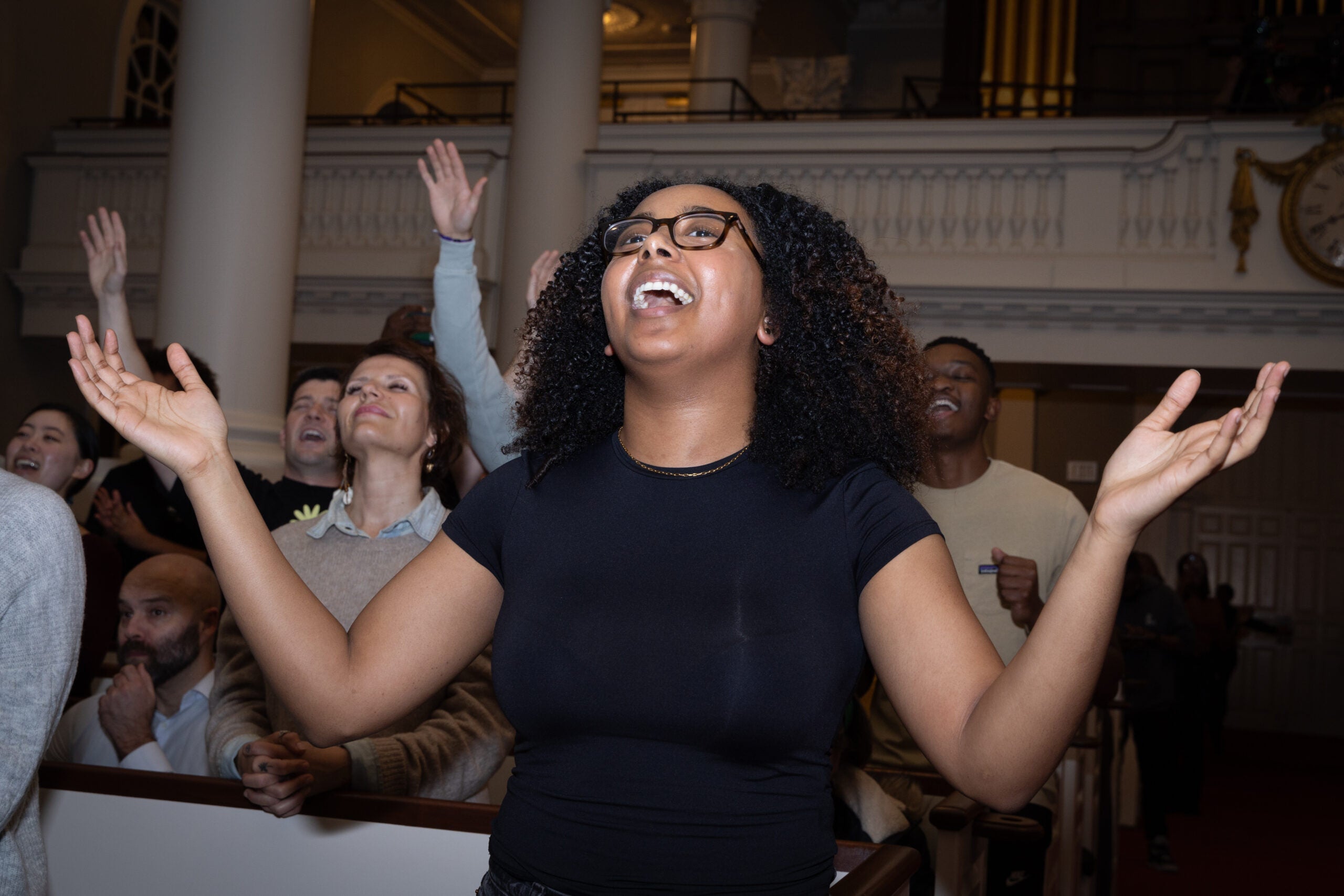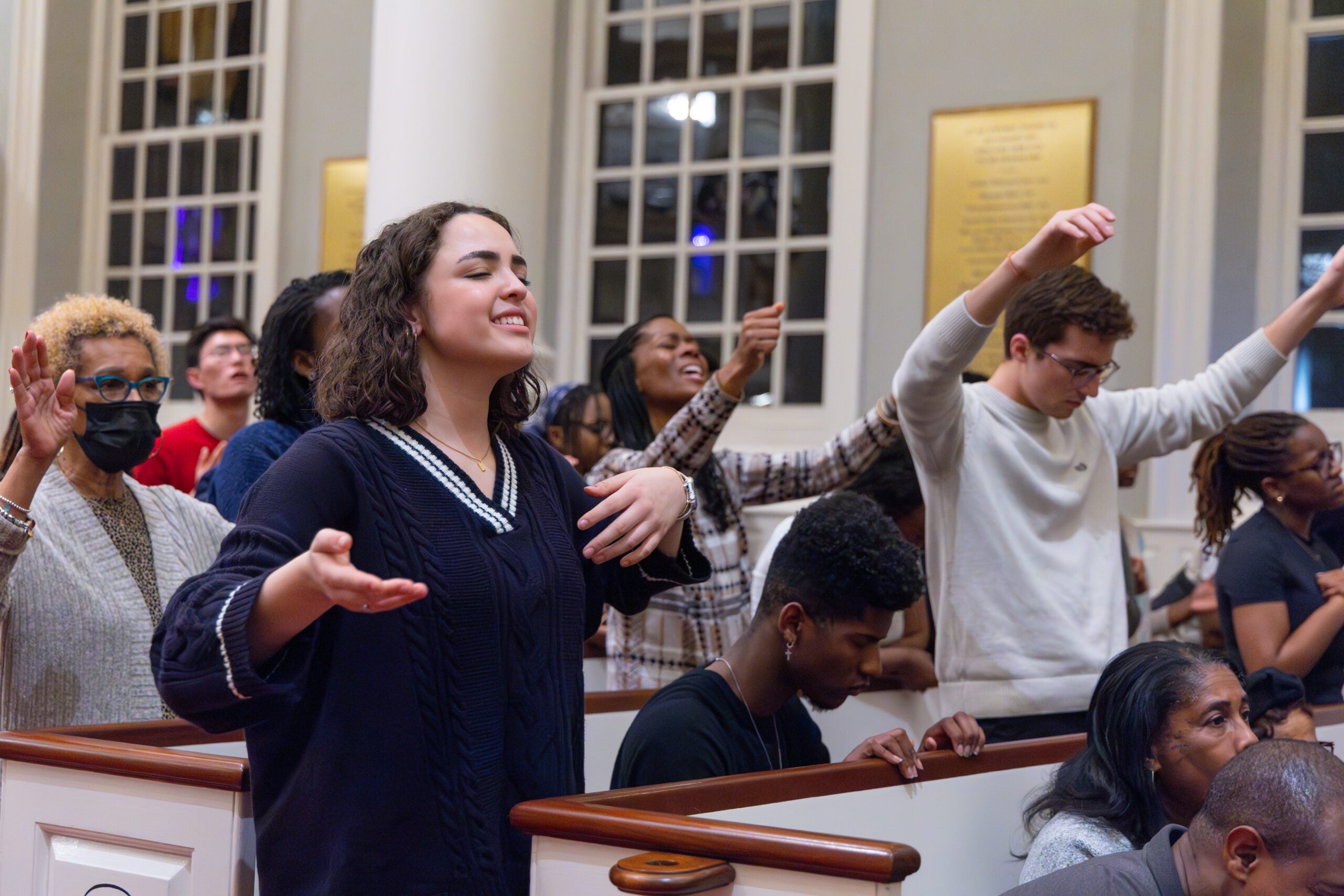Shortly before Dr. Martin Luther King, Jr. gave his legendary “I Have a Dream” speech at the March on Washington in 1963, iconic gospel singer Mahalia Jackson performed an electrifying version of the spiritual “I’ve Been ‘Buked, and I’ve Been Scorned.” As Jackson sang, some in the audience closed their eyes in reverence, while others swayed gently in time with the music. At Jackson’s final note, the crowd, once transfixed, burst into applause.
Although an undeniably powerful moment, this was not the first time — nor would it be the last — that music would serve to ground, fortify, and uplift African Americans in the fight for civil rights, or others who are going through difficult times, says Ruth Okediji LL.M. ’91, S.J.D. ’96, the Jeremiah Smith, Jr. Professor at Harvard Law School.
In fact, Okediji says, faith has long played an important role in the lives of many Black Americans, with worship music providing strength, joy, and hope, even amid oppression. And one way that faith is made manifest in biblical Christianity is through music, particularly hymns, she adds.
“A confidence in the Bible and its life-giving precepts made it possible for people to, day after day, week after week, month after month, get up again, and say, ‘We’re going to continue with faith and in this struggle, whatever the day might hold.’”
Hoping to introduce a new generation to this rich tradition of hymns, the Program on Biblical Law and Christian Legal Studies, of which Okediji is the founder and faculty director, held a worship night at Harvard Memorial Church on February 28, which featured Grammy-award winner Naomi Raine of Maverick City Music, Harvard College’s SoulFood worship team, as well as Restore Worship from Cambridge’s Pentecostal Tabernacle Church. Dr. Kia Martin Ed.M. ’01 Ph.D. ’08 and Rev. Dr. Theodore Hickman-Maynard, associate dean for Ministry Studies, Harvard Divinity School AB ’00, also led sessions of vibrant and powerful worship.
In an interview with Harvard Law Today, Okediji, who is also a world-renowned expert in intellectual property (IP) law, a lead negotiator for African countries on IP issues, and director at the Berkman Klein Center, spoke about the origins of the event, the role of faith and worship music in the Civil Rights Movement, and some of her own favorite hymns.
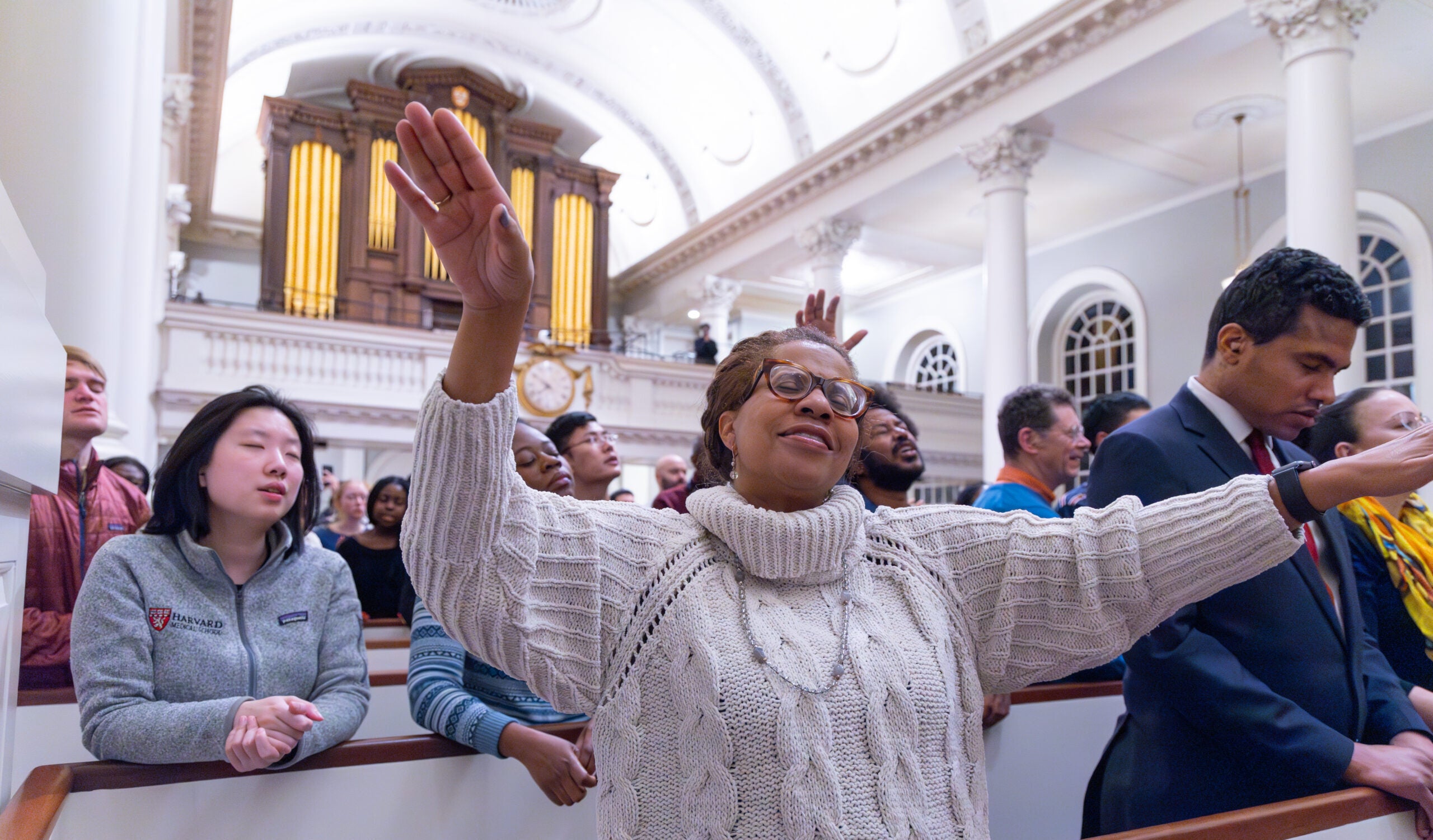
Harvard Law Today: Where did the idea for the event come from?
Ruth Okediji: The seed for this event was first planted several years ago after a conversation with my dear friend Professor Randy Kennedy. We were discussing the role of faith in our culture and in our society, and how, in difficult times, expressions of faith and the experience of having faith in God, was a common reference point in society. Today, we too often find ourselves divided over everything — big and small. We have somehow bred a culture of isolation, with little to hold us together.
During the Civil Rights era, something gave many in the Black community hope, strength, and resilience. Something made it possible for people to, day after day, week after week, month after month, get up again, and say, “We’re going to love those who hate us, we are going to preach and teach that we are created in God’s image. We will not back down from that truth.” People of all races found hope and strength in the faith, not only of Dr. Martin Luther King, but also the faith of mothers and fathers whose children were excluded from schools, playgrounds, and movie theaters. These were ordinary people with an unshakeable faith in the goodness and justice of the God they worshipped.
HLT: What role did faith play for Black Americans during the Civil Rights Movement?
Okediji: Church was — and still is for many — a place of lasting refuge and strength. Certainly, for many Black Americans, church was where people could focus on a reality greater than their present circumstances. The singing, the teaching, the learning, all gave strength and moral clarity to the fight for civil rights, and it gave room for people, even beyond the Black community, to imagine a country that could change, that could be better.
Remember that the faith convictions of many civil rights leaders were strong and deep. They weren’t dependent only or even primarily on a political process, on history, or on the rule of law, although all those things were and are still important. Rather, their claims for equality were anchored in the scriptural principles that they read weekly, and some daily — principles that compelled their actions for change.
Imagine how disempowering it would be to base any struggle you have on the very thing that has failed you – in this situation, for example to base the struggle for change on the apparatus, of laws and judicial precedents that denied your humanity, your dignity, your hope for a bright future. Instead, many — and especially Dr. King — placed their hope first in something completely extra-legal, and it was the unchangeable, unchanging promise of God’s love, mercy, and justice. These promises certainly fueled many in the civil rights movement, and in particular, Dr. King’s leadership. It defined his commitment that the battles would not be carried out by violence but by love for others.
HLT: How was — or is — music a mode of expressing faith for civil rights leaders and other Americans?
Okediji: We read in the Bible that love never fails. So, you can try to stamp it out, resist it, beat back on it, but God’s love flowing through people will always compel us to fight for what is better. Songs like “This Little Light of Mine” or “Amazing Grace,” speak to who we are and our value. All of us, regardless of our race or ethnicity, socioeconomic position, or our politics are equally sinners and equally loved. Amazing Grace was written by a person who was once a slave owner, and who became a Christian, who struggled deeply with his sin and what he had done, and so he wrote this powerful hymn with words that have been sung in every language: “Amazing grace, how sweet the sound, that saved a wretch like me. I once was lost, but now found. Was blind, but now I see.”
All of us have been in that exact position. We’ve all been in places where we’ve suddenly recognized how wrong we are, how imperfect we are, how incomplete we are. In those moments, we need grace — and hopefully, there is someone who will gladly extend that grace to us, even when we are undeserving. Certainly, our current political and cultural moment is desperate for extensions of grace, from our political leaders to ordinary citizens. Grace that is greater than anything you or I have ever done.
The essential aspect of grace — reflected in this hymn in particular — is that it reminds us of our frailty but equally powerfully gives us a reason to hope that we can change. Hymns such as “Leaning on the Everlasting Arms” or “Blessed Assurance,” and spirituals like “His Eye is on the Sparrow” or “Wade in the Water,” similarly brought great comfort in knowing that despite life’s difficulties, even in the brutality experienced during enslavement or Jim Crow, could be overcome and would not be forever.
These great hymns and songs of lament are simultaneously expressions of grief and of hope, of weariness and of strength, of pain and of faith. It explains why praise and worship can sometimes come with weeping and with exuberant shouts of joy. During all the oppression and all the brutality of the civil rights era, you could find clapping, and singing, and dancing, for hours on end in Black churches. These hymns and songs were for many their lifeblood, the fount of moral courage, and the source of a love deeper than the hatred that they faced on a day-to-day basis. The literal meaning of the word “hymn” is “song of praise.” It’s amazing that amid this battle for human dignity, praise music was a weapon. And it still is!
HLT: What are some of your favorite songs, and in your view what messages do you take from them?
Okediji: “Amazing Grace” is one of my all-time favorites, because it always reminds me of what I could have been but for God’s love for the world. It is so easy to condemn people and what they believe in or stand for today. But people are redeemable. History is replete with stories of redemption. If there were no possibility of redemption, there would be no reason to hope. The hymn “Great is Thy Faithfulness” is another favorite because it speaks to the past, present, and future of God’s goodness. Praise and worship music is usually filled with declarations of where we should be going, and not just a condemnation of where we are now.
I think that what Dr. King often taught, and what many of us read in the Bible, is that it’s not enough to criticize, analyze, or condemn a situation. You also must point people to hope, to forgiveness, and to grace. If the main message a generation hears is hatred and condemnation, well, condemned people have nothing to fight for, they have nothing to look to, and no clear path forward. But hope defeats condemnation, and love overcomes hatred. So, these are not just songs, they are sermons. They are declarations of biblical truths in action. They are reminders of where we’ve come from and light for where we should be going.
HLT: Why might these songs still be relevant today?
Okediji: Sometimes people can receive through melody what they cannot hear in prose. The spoken word is powerful, but a lyric sung reaches people in their hearts, and this is, after all, where real change happens. Someone with a changed heart is empowered to live better, stronger and to be healthier in mind and soul.
I think legacies are important. I wanted to remind this generation that songs of praise and worship sustained previous generations, and to pass them on. I also think we need to come back to a place where we sing hymns in community. The mental health epidemic on our campuses and nationwide, our continuing divisions, all our societal concerns, whether it’s climate change, or injustice in the criminal justice system, or something else, remind us incessantly of our human brokenness. We are collectively experiencing loss and grief, instability, pain, and anger.
Where can we find healing? Where can we find hope? Where will we find strength and the possibility of overcoming these huge problems and the injustices that plague us? I believe that songs of worship can help in our healing, as they have always done. For this event, we were simply saying: whether you believe or not, whether you are a person of faith or not, come find out what generations past have known and experienced to be true. Come and be bathed in hope at a time when we really need it in the world.
